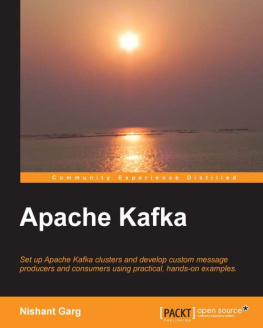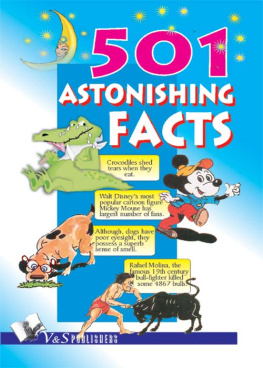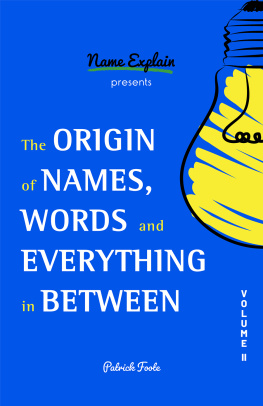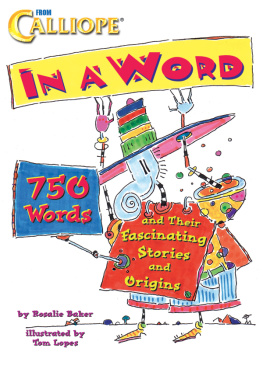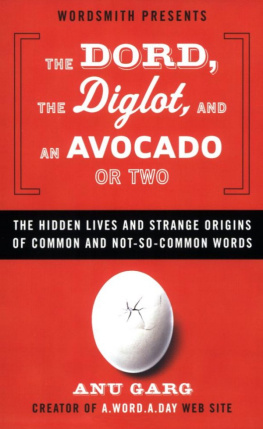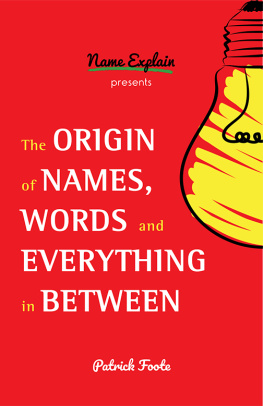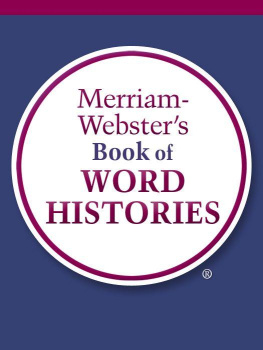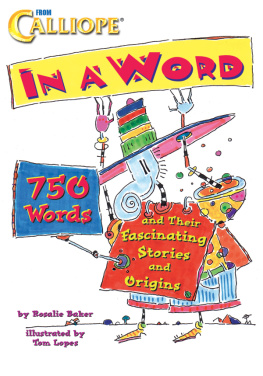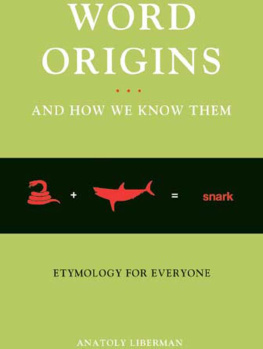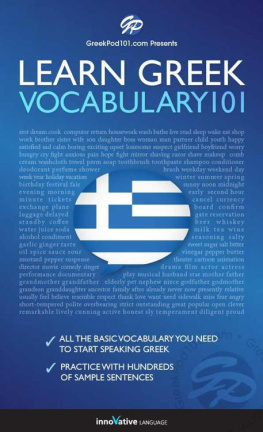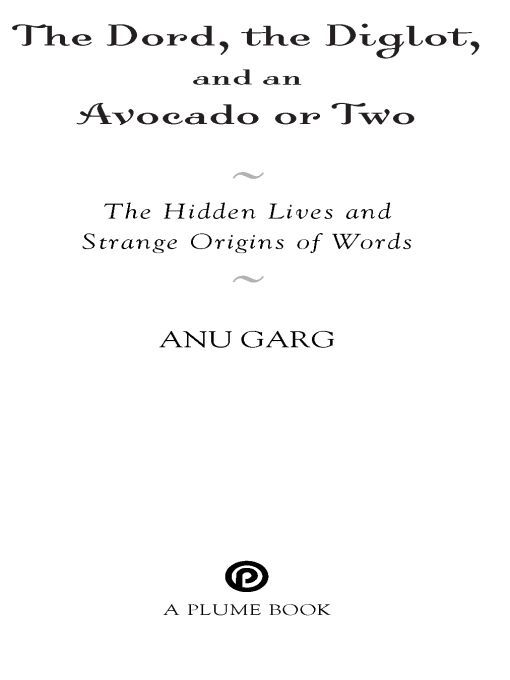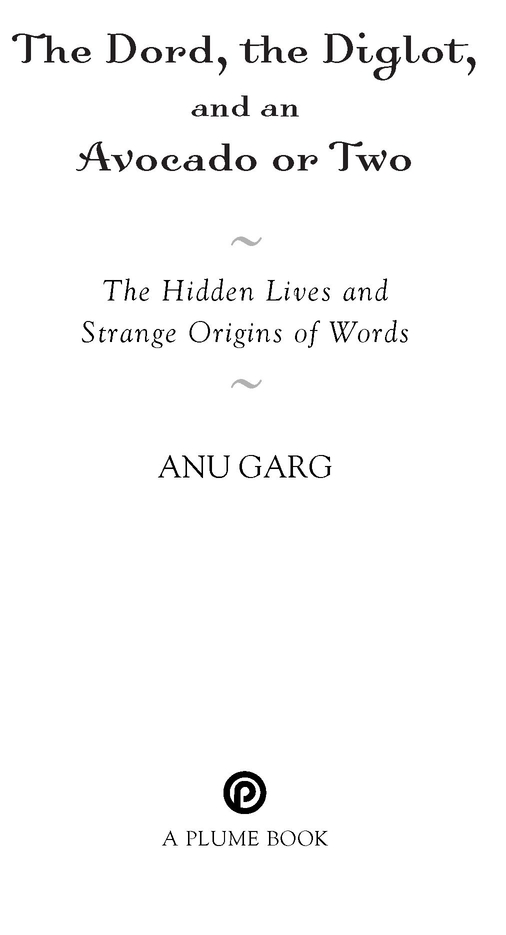Table of Contents
A PLUME BOOK
THE DORD, THE DIGLOT, AND AN AVOCADO OR TWO
ANU GARG is the founder of Wordsmith.org, a community of word lovers throughout the world, in two hundred countries. He is the author of two bestsellers on the joy of words. He lives in the Seattle area with his wife and daughter.
Compared to the drama of words, Hamlet is a light farce.
Anatoly Liberman
Introduction
What are words? The raw material for poetry, novels, plays, stories, and epics. But words are stories in themselveseach word has a story.
If you were looking for a book with the largest collection of stories in the worldall true storiesyou wouldnt have to look far. You probably already have that book: a dictionary. No wonder the French novelist Anatole France called a dictionary the universe in alphabetical order. This book is a collection of some of the more interesting stories behind words.
Each word has a biography. It tells us about its parents, where it was born, which corners of the world it traveled, and what twists and turns it took to reach where it is today. That biography of a wordthe story behind itis called etymology (from Greek etymos: true).
The parentage of some words remains obscure, waiting for a few intrepid detectives to trace, unearth, dig out, and explain. That doesnt stop speculators, though. For example, there are dozens of stories, each appearing to be the real one, for the origin of the term eighty-six (to discard, to refuse, or to be out of something).
Can you see a tooth in a dandelion? Thats how we got the word dandelion. It came to English from the French language. In French, dent-de-lion means tooth of a lionbecause its leaves look like the sharp teeth of a fearsome lion.
Even the words for the most mundane things have unusual stories. What do a bicycle and a biscuit have in common? Both begin with the letters b-i. Bi means two. So a bicycle has two wheels. And a biscuit is twice baked (or, at least, they used to be).
The little tags at the ends of shoelaces are called aglets. Thats because in French, aiguille means needle and aiguillette is a little needle. So an aglet makes a shoelace work like a needle that we can thread through the holes in our shoes. Those holes are called eyelets, or little eyes.
A chad is the little circle thats cut out when you punch a hole in a sheet of paper. Why is it called a chad? Nobody knows. Sometimes the origin of a word is a mystery yet to be solved.
This book is a collection of stories behind words. It is not meant to be a comprehensive treatise on the origins of words; rather, it presents a selection of some of the most fascinating stories behind words.
Chapter 1
Hidden Lives of Everyday ords
We often believe movie actors have fascinating lives. We crave to know about the childhoods of rock stars. Popular magazines dish out scoops on celebrities, because, after all, who wants to know about the life of the everyman on the street?
Yet if we get to know even the most ordinary-looking persons on the street, well learn that they have fascinating stories to tell. Each mans and womans life could be an opera, if only we took the time to discover more about themwhere they were born, what they did while growing up, what makes them tick, what their dreams and wishes are, and more.
The same goes with words. Sure, celebrity words have charming stories to tell (the word googol, coined by a nine-year-old boy, became the inspiration behind the naming of the Google search engine), but rank-and-file words in a dictionary have had lives that are intriguing, too. Their origins involve lovely stories as well. Here are a few of them.
PUPIL
The two senses of this worda student and the part in the center of the eyeare related. We got this word from the Latin pupus meaning a boy and pupa meaning a girl. Remember the pupa of a butterfly? Its the same word.
Now what about the part in the center of the eye through which light enters? Have you seen your reflection in someones eyes? How tiny it appears! Even adults appear small like little children in other peoples eyes. And thats why that part of the eye is called a pupil.
DIPLOMA
A diploma is a paper we get from a school when we complete a course. But why is that paper called a diploma? Its because traditionally that paper was folded in two, and the Greek word diplo means double or in pairs; these days doctors and dentists proudly display their diplomas not folded but framed on their waiting room walls.
The word diplomat is related. Long ago, diplomatic meant relating to documents. The shift in the sense occurred from the titles of collections of documents that were related to international relations. So diplomatic corps shifted in meaning from a body of documents to a diplomatic cadre in a nations capital.
Theres a dinosaur with a name starting with diplo: diplodocus. Thats because it has two long parts: a long neck and a long tail.
BLESS
When we bless someone, we wish for their well-being. We want the best for them, and the last thing wed think about is for them to be bloodied, but thats the origin of the word. That hidden blood becomes visible in the Old English form of the word: bledsian. Consecrating something involved smearing sacrificial blood over it.
In French, the word blesser still means to wound. So if you go to France and they say you are blessable, watch out. They are not saying you are suitable for blessing, rather you are susceptible to being wounded.
ADMIRAL
What could the commander in chief of a fleet have in common with a Muslim ruler? Well, they are one and the same thing, etymologically speaking. Admiral is another form of the word emir/amir, the title of the head of state in some Islamic countries. It came from amir al meaning commander of.
SYMPOSIUM
While in graduate school I took part in many symposia and seminars on topics related to my field of study: computer science. If only Id known the hidden meanings of those words at the time.... Symposium was originally a drinking party, and seminar came from semen. No wonder so many students go to college.
Drinking has a way of relaxing the tongue, and that idea grew into the current sense of symposiumwhere people gather to engage in conversation on a topic. Seminar came from semen via seminary. Semen is Latin for seed, and in earlier times a seminary was a place where students were developed and cultivated. It was a place for learning anything, not necessarily theology.
LADY
A
lady was, literally, a loaf kneader, from Old English
hlaf (loaf) +
dige (kneader). A
lord, in turn, was a loaf guard. Well,
1. What Russian author adopted a pen name that meant most poison?
weve come a long way from those olden times. Today a lady may well be commanding a spacecraft instead of kneading a loaf of bread. A lord may be pushing a baby stroller instead of guarding the loaf (though, idiomatically speaking, lords are supposed to be responsible for their bun in the oven till it comes outand for many years afterward.)


